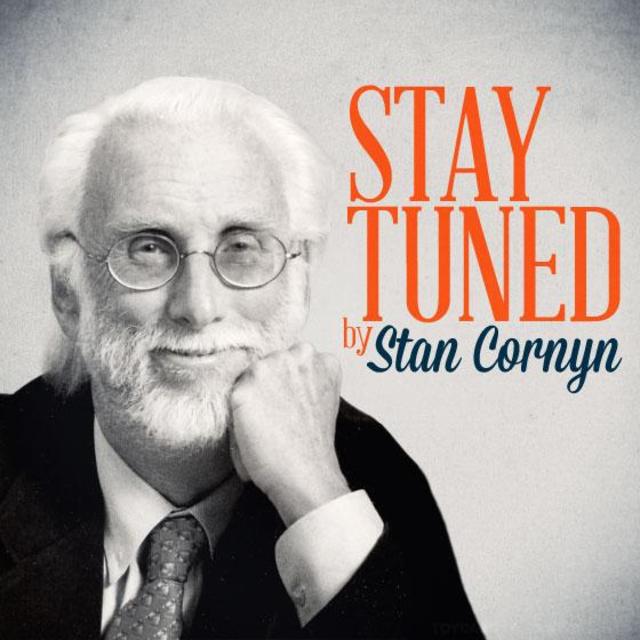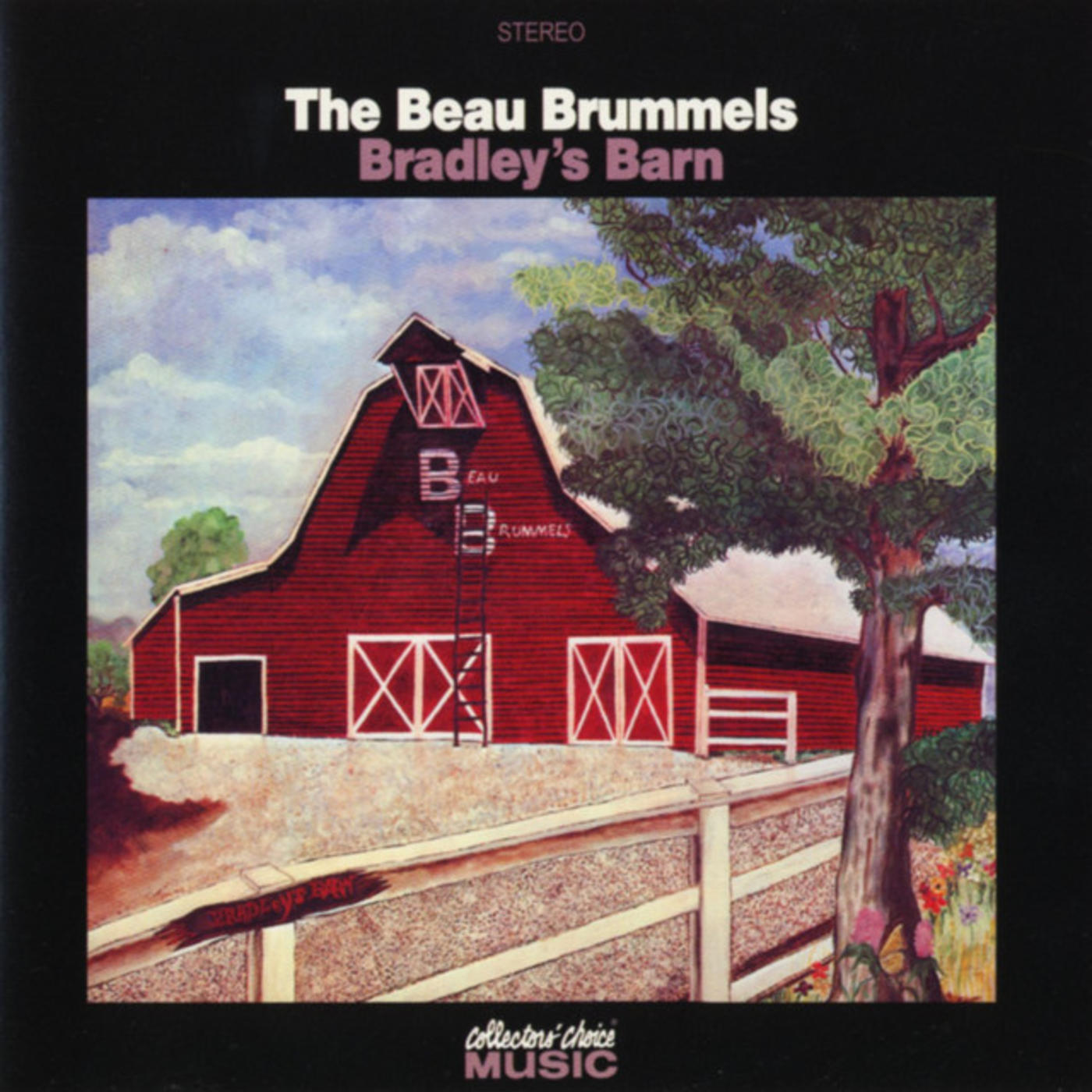Stay Tuned By Stan Cornyn: Autumn Leaves From Frisco

Every Tuesday and Thursday, former Warner Bros. Records executive and industry insider Stan Cornyn ruminates on the past, present, and future of the music business.
Joe Smith’s relationship with San Francisco’s heaviest disc jockey, Tom “Big Daddy” Donahue, went back at least a decade, back to when they both were heavyweight DJs in separate cities, back to when, to avoid being Payola Bad Guys, they’d separately moved out to California, to new jobs. What followed was a decade in which both men had their “success dreams” fulfilled in different ways.
Joe Smith’s way was running the Warner Bros. label, be its General Manager, and picking its artists and releases. In Burbank.
Big Daddy Donahue, up in San Francisco, had his way, too. He became a top DJ on Top 40 radio KYA along with his new partner. That partner was his co-Boss Jock Bobby Mitchell, a DJ who looked totally unlike the 300-pound Donahue. Mitchell was small and hilarious. Donahue was deep-voiced and, as his ad claimed, “over 400 pounds.”
Together, Donahue and Mitchell had spread their San Francisco financial powers beyond KYA into other, side-jobs. They published a radio-programmer’s tip sheet, called Tempo (advertising by record labels accepted, of course). And they staged major rock concerts at San Francisco’s biggest arena, called The Cow Palace. (Joe Smith would be hired to emcee some of these.) And they even co-owned race horses.
The term “Donahue and Mitchell” became, in San Francisco’s mid-1960s, as widely famous as “Proctor and Gamble.” They liked being a team that audiences would trust, and pay to deal with.
And to top all this, Donahue and Mitchell had, back in 1963, started their own record label. They named it Autumn Records, and signed local acts with maybe a future. Signed them with little or no advance money. For them, Autumn would be one more way they could cash in on music.
Autumn Records
Donahue and Mitchell didn’t handle the actual recording at Autumn. Mostly that was the job of a 19-year-old producer, Sylvester Stewart, who’d done singles himself and worked with local R&B bands. Stewart later modified his name to Sly Stone, and named his own band as “Sly and the Family Stone.” Sly produced the records for Autumn, handling the handfuls of acts Donahue and Mitchell signed. (None of the singles Sly created on his own for Autumn sold.)
The acts signed by Autumn were many. Names of them included --
•The Beau Brummels. This band was created by Ron Elliott, with lead singer Sal Valentino.
•The Mojo Men: Their single was “Dance with Me.”
•The Tikis: Later known as Harpers Bizarre.
But the Acts on Autumn list went on … And on. Not even worth their own paragraph were Autumn acts like the Vejtables, the Upsetters, Bobby Freeman, the Spearmints, the Dixies, the Casualeers, Charity Shane, Rico & the Ravens, the Chosen Few. . .
Despite all Autumn’s recording and “promotion” costs, few if any real hits came in to support Autumn as a profitable business. At one point, all Autumn’s master tapes even got locked up by the owners of the recording studio they’d spent hours and hours in, but had not paid the studio’s owner. Autumn couldn’t pay. It’d run out of money. They owed $10,000, because Donahue and Mitchell had treated any income as their profit first, with actual bills to get paid second.
On a trip up to San Francisco, Joe Smith – now general manager of the WB label -- offered to “save” his pals Donahue and Mitchell from their financial bind. Smith casually bought Autumn’s many artist contracts for Warner Bros. Records. The price was $12,749.33, adding on 2% as a production over-ride to Donahue and Mitchell.
All these artists could now become Warner Bros. artists. But now, what to do with all those acts? Back in Burbank, Joe checked around about which ones would be worth saving/recording.
The Big Sort Out
Joe Smith couldn’t get any of Warner-Reprise’s pro producers even to listen to all those acts he’d just “contracted.” So, somewhat casually, Joe turned to a new company kid (“intern” was not a word then employed in records). This kid had been hired to handle all those unsolicited tapes mailed in to WBR by hopeful artists.
Lenny Waronker was the kid. He came from a record business heritage. His father, Si Waronker, had founded Liberty Records in Hollywood (he was the original “Simon” in the hit single, “The Chipmunks”).
While in his teens, son Lenny hung out inside Liberty Records; it became his second home. He hung out, too, with other sons of music business stars, those who were into recording, too. They included another Hollywood-connected named Randy Newman, whose uncles (Lionel, Alfred) wrote film scores for studios. (Stay Tuned)
Even through his years at USC, Lenny was set on being in the record business. He’d first become a song plugger for the publishing side of Liberty. Then, in April, 1966, he’d joined Warner’s A&R “department,” handling those unsolicited tapes that’d arrived in hopeful envelopes.
Lenny continued, outside the building, to hang with other L.A. wanna-be’s, including Leon Russell and Van Dyke Parks. (Remember: Stay Tuned)
Upstairs at WBR, the older staff remembered him as a nice but slight-bodied lad. Bob Krasnow once described Waronker succinctly: “Lenny didn’t even shave then.”
Lenny was just what Joe Smith needed, not only to listen to all those odd-named groups Warner now had rights to, but then get Lenny to produce the worthy ones. Joe told Lenny, “You’ll cut these groups. It’ll be cheap. It’ll be fast. But first, you have to hear them.”
Lenny listened to them all, dropping those that didn’t feel right. He divided the remainders by labels: Warners in one pile, Reprise in pile two, and Loma for Bobby Freeman.
Lenny Meets His New Acts
Lenny flew up to San Francisco to meet with the selected few acts he’d picked.
Also in the meet-with-them room was the one employee of Autumn who’d continue into the WBR “downstairs A&R” group, a youngster named Carl Scott, who’d administered publishing and other paperwork for Autumn. Carl was there to keep track of stuff.
The first act on Lenny’s “yes probably” list was the Beau Brummels.
Carl Scott once described that first meeting with the Autumn survivors: recalling how “Lenny was scared to death in his little black suit.” The Beau Brummels were, of all Autumn acts, the heaviest weights. They’d had Autumn hits: “Laugh Laugh” and “Just a Little.”
The Beau Brummels trio had Beatles-style haircuts, like they’d just flown in from Carnaby Street. Not mentioned aloud, but someone in marketing at Warners had recognized an added value to this group, because in record store browser boxes, BEAU Brummels albums stood right after the BEATles, alphabetically.
Next meeting: The Tikis. Leader of The Tikis was Ted Templeman (who later became a major producer within WBR). Templeman remembered “We were from a whole different school. I remember thinking how slick Lenny was. He had a gold ID bracelet and really looked the Hollywood part. But we were excited because he told us, ‘We’ll make a record and use accordions.’ He said he had a song that would probably do well for us.”
In 1966, Waronker started producing The Tikis. He changed the group’s name to Harpers Bizarre. He brought in his own musicians to help. Brought in Randy Newman at the piano. The first single they cut covered Simon and Garfunkel’s “The 59th Street Bridge Song (Feelin’ Groovy).” The new, Harpers Bizarre single went Top 20.
“Top Twenty!” and Joe Smith eagerly made one big point with Waronker: a whole Harpers album, right now.
Waronker got the message. He turned again to Randy Newman, who agreed to put into the album his “Debutante’s Ball” and “Simon Smith and the Amazing Dancing Bear” (Randy insisted on doing his own arrangements; “no problem”). Leon Russell came in with his two tunes, and arranged them. Van Dyke Parks wrote “Come to the Sunshine.”
So Warner Bros. took on the Beau Brummels and the Tikis. Mo’s Ostin’s label Reprise would get the Mojo Men. Their sound became “pop+folk-rock.” And they came up covering Buffalo Springfield’s tune “Sit Down I Think I Love You” for Reprise. Written by Stephen Stills and arranged by Van Dyke Parks.
Together these and other music men in Lenny’s phone book contributed to what would become known as “the Burbank Sound,” a sound starring artists in their twenties, from Randy Newman to Maria Muldaur, with hits that felt nimble to the ear, and loving, and that avoided bam-bam.
A Fundamental Change in Burbank
From this nervous start, Lenny and his friends quickly grew to be another limb of Warner-Reprise. Lenny’s clan lingered in the downstairs area the Warner referred to, somewhat over-grandly, as its A&R Row (just four offices).
The gang had new ears. Ears that knew singles needed more than just to have triplets. Triplets, those were yesterday’s sound. The music world was growing younger again. Yesterday, it now felt like, TV had stopped broadcasting those tired-Top-40 series like Hullabaloo and Shindig, with their lip-sync-ing acts. Vegas lounge acts, fading away now. Oops.
The clan’s new sound, if it’s describable, would use the word “Best.”
And Warner had a new bunch downstairs – Lenny, Randy, Van Dyke, Teddy, Carl, and some nifty secretaries, too – that made a fundamental change in the lives of all, upstairs and down, at Warner Bros. Records.
-- Stay Tuned

